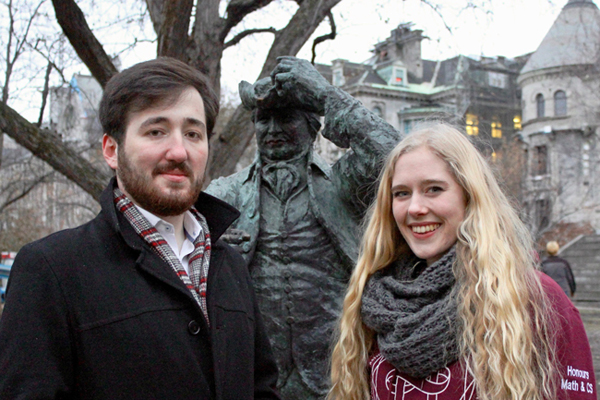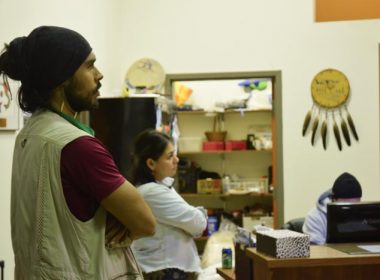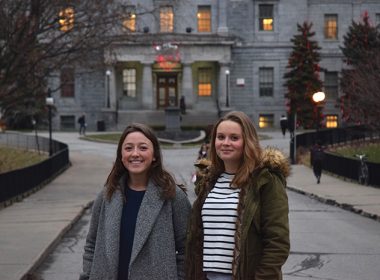On Nov. 20, the McGill community celebrated Alexander Lachapelle, Medical Doctorate and Master of Surgery, and Clare Lyle, U3 Science, who were selected to be the University’s 143rd and 144th Rhodes Scholars. One of the most prestigious scholarships in the world, the Rhodes Scholarship funds postgraduate studies at the University of Oxford for exceptional students across North America. The McGill Tribune spoke to both Rhodes recipients about their accomplishments, plans at Oxford, and projects they hope to complete in their final year at McGill.
Alexander Lachapelle
Lachapelle, who is currently pursuing his Doctorate of Medicine and Master of Surgery, is a representative for several medical associations, where he looks into how health policies are developed and what steps can be taken to improve patient care. The Terry Fox Humanitarian Award scholar has served on the executive board of the World Federation for Medical Education (WFME), and has also represented the International Federation of Medical Students’ Associations (IFMSA) as its Liaison Officer.
Beyond his knack for health policy, Lachapelle’s main passion is technological innovation. Over the past academic year, he moved to New York City to intern at Imagen Technologies, a startup that applies artificial intelligence software to devices for medical diagnostic error prevention. For Lachapelle, working with machine learning to improve patient outcomes and diagnosis was an enriching glimpse into the future of healthcare.
“Although there are definitely lots of challenges in implementation, I think that if we can harness the power of these technologies, there would be a huge amount of potential to prolong life and improve patient health,” Lachapelle said.
While at Oxford, Lachapelle hopes to bridge connections between machine learning and healthcare. He plans to return to Montreal after receiving his post-graduate degree.
“I think Montreal has a really unique environment to learn medicine in,” Lachapelle said. “The diversity of people you meet here, both patients and healthcare professionals, is unrivaled probably anywhere else in the world.”
Clare Lyle
When Lyle, U3 Science, is not busy working toward her Joint Honours Math and Computer Science undergraduate degree, she spends her time working as the Director of HackMcGill and as the Vice-President Academic of McGill’s Computer Science Undergraduate Society (CSUS).
Lyle, who was also one of 34 Canadian students selected in 2014 for the Loran Scholarship—an undergraduate scholarship valued at $100,000—became interested in theoretical computer science after working at McGill’s Reasoning and Learning Lab. At the lab, Lyle looked into how statistics can predict algorithm behaviour.
In the summer of 2016, Lyle was an Explorer Intern at Microsoft, where she worked on a machine learning classifier for customer feedback. The following summer, she interned at Oxford, where she studied artificial intelligence and its implications for policy and society.
“I looked at public opinion on AI, implications of AI on security, [and] both cyber and national security,” Lyle said. “[This included] how governments can use AI either for military purposes or, if there is a dictatorship, how it can use machine learning to control what people are saying and detect dissent.”
Lyle, who plans to pursue a Doctor of Philosophy (DPhil) in computer science at Oxford, was drawn to the university for its interdisciplinary analysis of technology on society. She intends to spend her last year at McGill preserving institutional memory for the student clubs in which she’s involved.
“I’ve been gradually easing people into more leadership positions in the organizations that I’ve been involved in, such as HackMcGill,” Lyle said. “Instead of me doing the agenda, I’ve been doing a rotating weekly agenda master so that everyone is familiar with how to write an agenda and how to run a meeting.”
Clare Lyle served as Online Editor at The McGill Tribune in the 2016-2017 academic year.









